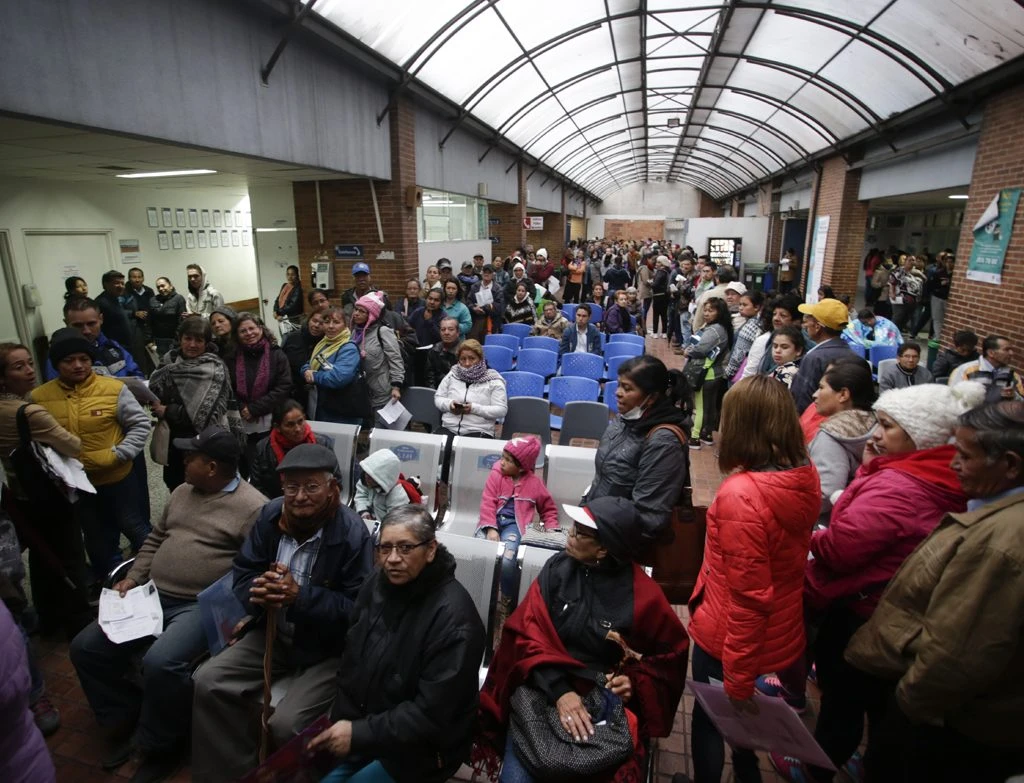Bogotá
Reforming Patient Experience in Bogotá Hospitals
Bloomberg Associates worked with the City of Bogotá to address challenges citizens face when seeking medical assistance in the city’s hospitals.
We have worked to radically improve the attention given to those who go in-person to make appointments. We are very proud of the work that’s been done. For the users it has been a complete change.
Enrique Peñalosa, Former Mayor of Bogotá
Relevant Expertise
Modernize Municipal Systems and Processes
- Contract Transparency
- Internal Operations and Reporting
Promote Digital Solutions and Approaches
- Digitization of Municipal Services
Challenge
Residents of Bogotá have found municipal hospitals to have tremendous administrative inefficiencies and complex procedures for obtaining health care. This has resulted in chronic delays with medical care and petty corruption vulnerabilities. Preliminary findings from a review of patient services at Kennedy Hospital indicated long lines for emergency room care, difficulty securing appointments for outpatient care and obtaining lab test results, poorly organized facilities, security concerns, and a lack of reliable information about hospital services. Bloomberg Associates was asked to create a strategic plan to address these shortcomings.

Approach
Bloomberg Associates developed a pilot project at Kennedy Hospital, the largest of the 22 hospitals within the city’s public hospital system. The goal of the project was to conduct a deep, multifaceted analysis of the procedures for servicing patients in order to make recommendations that would bring about more efficient experiences for the public, and tackle corruption vulnerabilities.
Because of Kennedy’s size and number of patients, it faces long lines in outpatient and ER services. It was chosen as the pilot site because if the patient experience could be improved at Kennedy, that would have a maximum impact for citizens and create a precedent for the city’s other hospitals to follow suit. Another important characteristic of Kennedy Hospital is that it has its own call center to book outpatient appointments: experiences with the call center were mixed, including extremely long hold times and dropped calls. Addressing the challenges with the call center was a priority area for the pilot, and resulted in a number of recommended improvements to enhance the customer experience for callers.
Onsite field teams, assembled by Bogotá’s municipal oversight agency, the Veeduría Distrital, were strategically placed at the hospital. The teams provided Bloomberg Associates with an extensive understanding of the root causes of patient congestion as well as other problems, including corruption vulnerabilities. Research on hospital and security protocols, call center data and hospital floor plans, in addition to surveys of patients, staff members, and supervisors were part of the pilot methodology. This information was gathered and contributed to a comprehensive body of data that would ultimately facilitate the identification of sustainable, replicable solutions for improving the quality and integrity of service delivery at public hospitals in Bogotá.
Impact
The reorganization of Bogotá hospitals has proven how transparency and information can improve the health of public institutions and the lives of the people they serve. The waiting rooms at Kennedy Hospital were expanded and the staff increased and reorganized. Hours open for medical attention were extended, and a system was established to prioritize services for vulnerable populations. Patients can now take a number and sit in comfortable, well-lit rooms with digital displays that show approximate wait times, which have been greatly reduced. Moreover, this program has been scaled to the other 21 hospitals in the city’s public hospital system.

Metrics
225K+ Bogotanos served annually by Kennedy Hospital
90% reduction in lines at Kennedy Hospital
500K+ estimated number of Bogotanos served annually by all hospitals who have piloted the “Zero Lines” initiative
Top Photo: Credit: Juan Páez